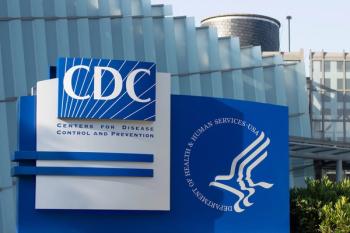
Clinicians must acknowledge root of anti-vaccine trend to tackle the problem
Vaccine hesitancy isn’t as much about additives, side effects, or organic parenting as it is about shifting societal trends toward distrust of medicine and a focus on one’s individual health, according to a new report.
A number of political and societal factors may be more to blame for the anti-vaccination trends than personal convictions, according to a new report.
The study, published in the
Heather MacDougall, a history professor at the University of Waterloo and co-author of the study, along with Laurence Monnais of Université de Montréal, said the report focused on the adoption of the measles vaccine in the Canadian provinces of Ontario and Quebec between 1963 and 1997.
In the 1960s, Canada was debating the creation of the national health insurance program and curative versus preventive services, and immunizations were seen as a way to control escalating costs after the implementation of these programs, according to the report. At the same time, new-wave feminism, a growing public interest in complementary and alternative health care, new parenting styles, and a decreasing focus in medical education on prevention added the influence social changes to vaccination practices.
Finally, Canada lacked a national immunization schedule like the U.S. has which, combined with these other issues, contributed to uneven uptake of the measles vaccine over several decades in Canada. This story, the report noted, is a lesson on vaccine hesitancy and one clinicians must take seriously.
“We are arguing that clinicians and other healthcare providers need to know the history of measles vaccination in order to appreciate how complex the concerns that specific parents have are and that they may have social and cultural roots which require empathetic discussion,” MacDougall said. “We hope that the clinicians who read our article will take time to think about the discussions that they have with concerned parents and seek to probe carefully and compassionately into the exact nature of the concerns about immunization with MMR.”
MacDougall noted that while apathy is a term commonly used to describe parents or patients who are hesitant to adopt recommended vaccination schedules, there may be more to it than that.
“Was it really apathy or was it a result of systemic factors? Our analysis indicates that social, political and economic trends contributed to questions that may have limited uptake,” MacDougall said. “The purpose of our article was to alert the readers of the Canadian Medical Association Journal to the long and complex history of apathy/complacency/hesitancy to measles immunization. Too much attention has been given to the impact of the Wakefield article which we argue simply catalyzed rather than created a growing sense of unease about the merits of vaccination among young Canadian parents.”
Part of the problem, too, is that the trend of concern has shifted, MacDougall added, from a focus on collective public health programs in the 1970s to health promotion practices aimed at the individual self.
“The appearance of HIV/AIDS in the 1980s and the tainted blood scandal in the 1990s reinforced growing questioning of scientific authority that had emerged during the 1960s with the thalidomide scandal and in the 1970s with the swine flu debacle. And the arrival of the Internet in 1995 meant that the existing small anti-vaccination organizations could expand their reach,” she added. “All of these factors are presented to demonstrate to clinicians that they carry out their work in a contested environment and that for change to occur, they need to understand their individual perspectives and background and to listen carefully to the concerns that parents articulate to determine the real cause of vaccine hesitancy.”
Newsletter
Stay informed and empowered with Medical Economics enewsletter, delivering expert insights, financial strategies, practice management tips and technology trends — tailored for today’s physicians.






